Did you know the world celebrates days to memorize the significance of various days like National Pancake Day, and Mexican Constitution Day. Similarly, today, in this article, we, the World’s #1 Source of Research-Based Content, The Daily Top 10 will explore the Top 10 Reasons Why We Celebrate Carnival Day in Brazil.

Carnival is one of the most iconic and well-known cultural events in Brazil, attracting millions of visitors every year from all around the world. This event is celebrated in the days leading up to Lent, which is a time of abstinence and sacrifice for many Christians. It is an opportunity for people to let loose, celebrate life, and enjoy themselves before the more solemn and introspective season of Lent.
So, let’s explore the Top 10 Reasons Why We Celebrate Carnival Day in Brazil.
What is the Main Reason for Celebrating Carnival Day In Brazil?
Carnival is a festival celebrated worldwide, but it is most commonly associated with Brazil. It is a time when people gather to enjoy the music, food, and festivities that accompany this event. There are many reasons why we celebrate Carnival Day, and here are the TOP 10 Reasons Why We Celebrate Carnival Day in Brazil.
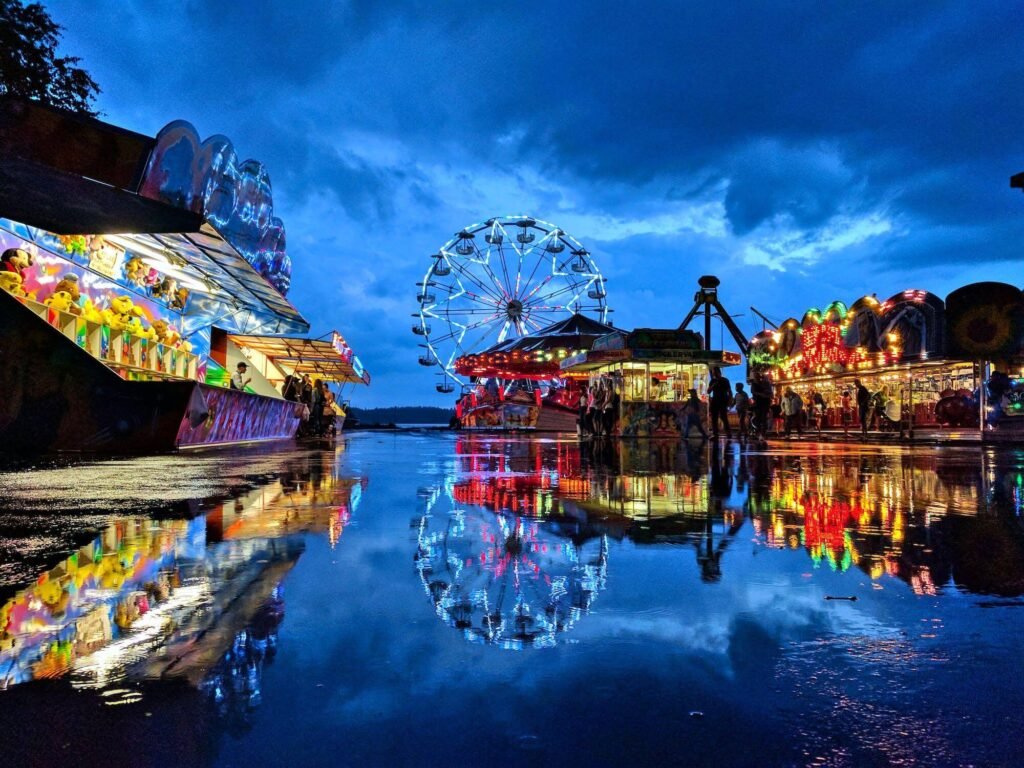
But before identifying the Main Reason behind celebrating Carnival day in Brazil, let’s go through the rest of the reasons now.
TOP 10: Historical Significance
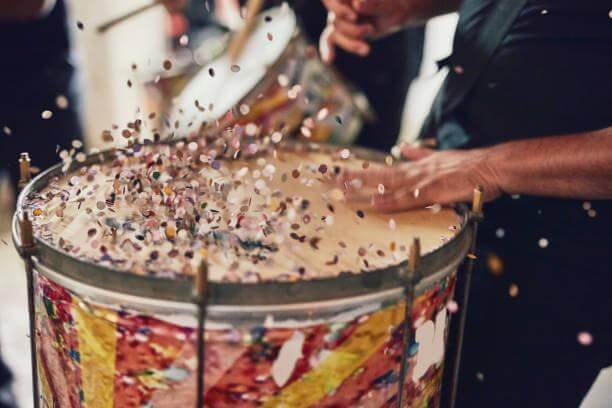
According to Rio, the Carnival tradition in Brazil can be traced back to the colonial period when Portuguese settlers brought their own cultural and religious traditions to the country. Over time, these traditions blended with the customs of African slaves and it resulted in a unique and vibrant celebration of music, dance, and culture that we know today as Carnival. The historical significance of Carnival in Brazil is rooted in the country’s colonial past.
During the 18th century, Portuguese colonizers brought slaves from Africa to work in the country’s sugar plantations. These slaves brought with them their own music, dance, and religious traditions, which mixed with the Portuguese culture to create the unique Brazilian Carnival we know today. Carnival also served as a way for slaves to express their culture and identity in a society that tried to suppress it. Today, Carnival continues to celebrate Brazil’s cultural diversity and is a symbol of the country’s resilience and creativity in the face of hardship.
TOP 9: Cultural Diversity

Cultural diversity refers to the variety of cultures, traditions, beliefs, and customs that exist within a society or region. It is a fundamental aspect of human societies and plays an important role in shaping social interactions and shaping worldviews. Celebrating cultural diversity allows people to appreciate and learn about different cultures, which can foster greater tolerance, understanding, and respect among different groups. Brazil is a country with a rich cultural diversity, and one of how it celebrates this diversity is through Carnival Day.
National Today stated that Carnival Day is a popular festival that takes place in Brazil every year, usually in February or March, just before the start of the Catholic Lent. The festival is a celebration of Brazilian culture, music, dance, and traditions, and it attracts millions of visitors from all over the world. Carnival Day in Brazil is characterized by colorful parades, street parties, and live performances by samba schools, which are groups of dancers, musicians, and performers that showcase their skills and creativity. The festival is a representation of Brazil’s cultural diversity, as it brings together people of different backgrounds and traditions to celebrate their shared identity and cultural heritage.
TOP 8: Costumes
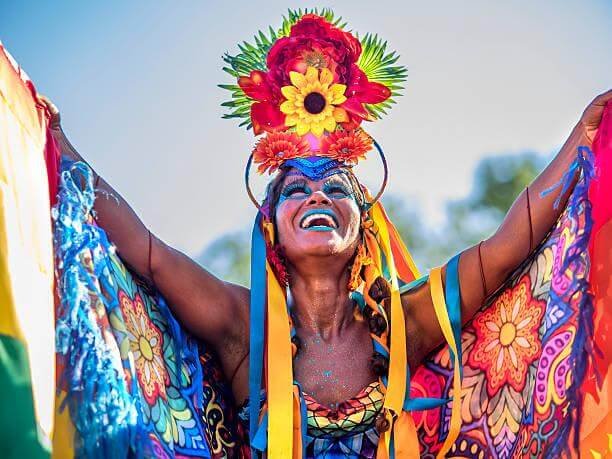
Carnival is an annual festival celebrated in Brazil with great enthusiasm and extravagance. One of the most exciting aspects of this celebration is the elaborate costumes worn by participants in the parades and parties. These costumes are colorful, vibrant, and designed to represent various themes and characters. They are made from a variety of materials, including feathers, sequins, and beads, and are often accessorized with hats, masks, and headdresses.
The costumes worn during Carnival in Brazil reflect the country’s rich cultural heritage and are a blend of African, European, and indigenous influences. Many of the costumes are inspired by the traditional dress of Brazilian folklore, such as the Baiana dress, which is worn by women and features a flowing skirt and a brightly colored headscarf. Others are more modern and incorporate elements of contemporary fashion and design. Regardless of their style, all Carnival costumes are created with a sense of fun and playfulness, making them an essential part of the festive atmosphere of the history, as mentioned in Brazil Culture And Travel
TOP 7: Music and Dance

According to Brazil Travel Information, music and dance are integral parts of Brazil’s Carnival Day, which is celebrated every year in February or March. The event is a massive celebration of Brazilian culture, and the music and dance that accompanies the festivities reflect this vibrant and diverse heritage. The rhythms and beats of Carnival music are often inspired by traditional Brazilian genres such as samba, forró, and axé. These styles are combined with modern electronic music to create a unique sound that is both traditional and contemporary.
Dance is also an essential element of the Carnival Day festivities in Brazil. Samba is perhaps the most iconic dance style associated with Carnival, with its fast-paced footwork and rhythmic hip movements. But many other dances are performed during the event, including coco. These dances have their roots in different regions of Brazil, and they are often performed by groups of dancers who wear coordinated costumes and perform intricate choreography.
TOP 6: Street Parties

Street parties are a common way to celebrate special occasions in many cultures around the world. These events usually involve closing off a section of a street or square to traffic and setting up stages or sound systems for live music and entertainment. People come from all over to dance, sing, and socialize with their friends and neighbors. Food and drink vendors line the streets, selling traditional snacks and refreshments to the revelers. Street parties are a great way to bring people together, build community spirit, and celebrate important events.
As mentioned in Carnival Bookers, this annual event takes place in the days leading up to Ash Wednesday and is a time for people to let loose and enjoy themselves before the solemn season of Lent. Cities like Rio de Janeiro and Salvador are known for their extravagant Carnival parades, where samba schools compete for prizes in a dazzling display of costumes and choreography. But the street parties are just as important to the Carnival experience, with millions of people taking to the streets to dance and celebrate. From traditional samba music to more modern beats, there’s something for everyone at a Brazilian Carnival street party.
TOP 5: Economic Impact

Carnival Day is a major event in Brazil, attracting tourists from all over the world. This festival has a significant economic impact on the country as it generates a large amount of revenue through tourism. The influx of tourists leads to an increase in demand for goods and services, which boosts various industries such as transportation, hospitality, food, and retail. The carnival also creates employment opportunities for many people, especially in the tourism industry. It is celebrated in various cities across Brazil, and each city has its unique way of celebrating, providing visitors with a diverse range of experiences to enjoy.
In addition to its economic impact, Carnival Day in Brazil also has a cultural significance. It is a time when people come together to celebrate and showcase their rich cultural heritage through dance, music, and costumes. The carnival is a symbol of Brazil’s cultural diversity, and it reflects the country’s vibrant and lively spirit. The festival brings people from different backgrounds and social classes together, creating a sense of community and togetherness this information is from Statista
TOP 4: Social Cohesion

According to Minikar, social cohesion refers to the degree of unity and interconnectedness within a society. It is characterized by shared values, beliefs, and practices that promote a sense of belonging and mutual support among individuals and groups. One example of social cohesion is the celebration of Carnival Day in Brazil. This festival, which takes place annually in the days leading up to Lent, brings together people from all walks of life to celebrate their shared culture and heritage.
Moreover, the Carnival Day celebrations in Brazil also promote social integration and cultural exchange. People from different regions of the country, as well as international tourists, come together to experience the rich and diverse culture of Brazil. This exchange of ideas, traditions, and experiences helps to break down cultural barriers and promote a greater sense of empathy and understanding among people. Furthermore, the festival provides an opportunity for people to express their creativity and individuality, which in turn fosters a sense of self-confidence and personal fulfillment.
TOP 3: Pride in National Identity
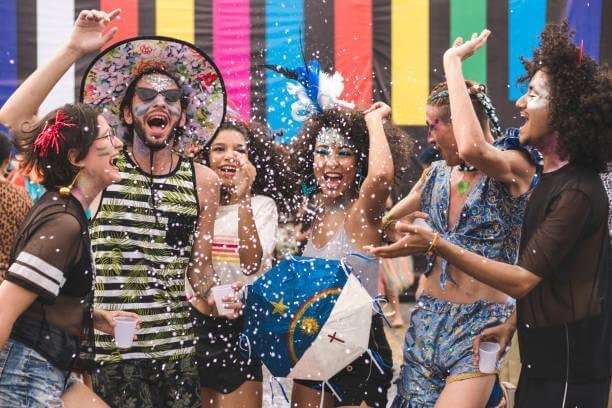
Celebrations of national identity are a way of recognizing and honoring the collective history and achievements of a country. In Brazil, one such celebration is Carnival Day, a cultural event that represents the country’s unique heritage and national pride. During this festival, people come together to celebrate their Brazilian identity, dressing in colorful costumes and participating in parades and street parties. Through this celebration, Brazilians showcase their unique music, dance, and art, reminding themselves and the world of their rich cultural heritage and national identity.
Carnival Day in Brazil is a reflection of the country’s national identity, and it has become a symbol of Brazil worldwide. Its colorful and lively atmosphere represents the country’s diversity and cultural richness, with people from all walks of life coming together to celebrate their unique identity. The festival is also a way of strengthening national unity, as it brings people from different regions and backgrounds together under one cultural umbrella. The celebration of Carnival Day in Brazil highlights the country’s national pride and serves as a reminder of the importance of celebrating and preserving cultural heritage as a source of identity and unity stated in the Wilson Center
TOP 2: Freedom of Expression
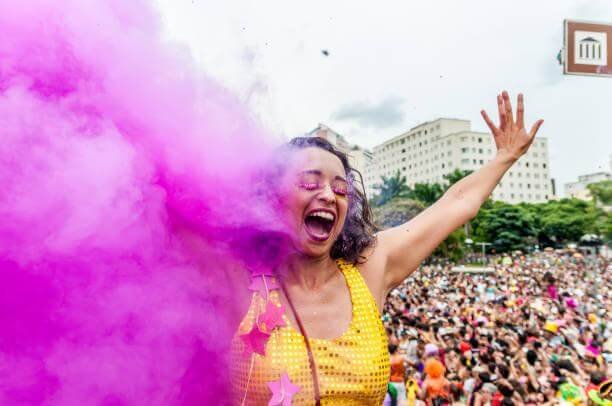
According to Article 19, freedom of expression is a fundamental human right that enables individuals to express their thoughts, opinions, and beliefs without fear of censorship or persecution. In Brazil, this right is enshrined in the country’s constitution and celebrated annually during Carnival Day. This festive occasion is marked by vibrant parades, music, and dance, all of which represent a celebration of free expression and cultural diversity.
During Carnival Day in Brazil, people from all walks of life are free to express themselves in whatever way they choose. This can range from extravagant costumes to provocative dance moves, and everything in between. For many, this is a chance to let loose and celebrate their identity, without fear of judgment or reprisal. This is a powerful example of how freedom of expression can help to foster a more inclusive and tolerant society, where all individuals are free to express themselves without fear of discrimination or persecution.
TOP 1: Environmental Sustainability
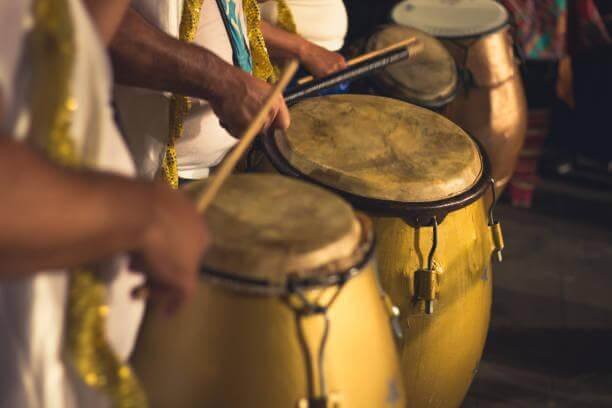
Environmental sustainability is the practice of using natural resources in a way that meets the needs of the present without compromising the ability of future generations to meet their own needs. It involves ensuring that human activities do not harm the natural environment and that natural resources are used in a way that preserves them for future use. Most importantly, it is important because it helps to ensure that the planet remains habitable for humans and other species, and that future generations have access to the same resources that we do. In addition, it is a global issue that requires the cooperation of individuals, businesses, and governments to address.
Carnival Day is an important celebration in Brazil that takes place in the days leading up to the Christian observance of Lent. The celebration is known for its elaborate costumes, parades, and street parties while Carnival is a time of joy and celebration, it can also hurt the environment. The use of disposable plastic cups, plates, and utensils can generate a large amount of waste, and the use of motorized floats can contribute to air and noise pollution mentioned in Premium Beauty News. Hence it is concluded that Environmental Sustainability is the Main Reason for Celebrating Carnival Day in Brazil.
What are the Reasons for Celebrating Carnival Day In Brazil?
In conclusion, Carnival Day in Brazil is a celebration that is deeply rooted in the country’s history, culture, and identity. It represents a time when people come together to celebrate life, express themselves, and honor their heritage. The festival has evolved, reflecting changing values and attitudes, and incorporating new traditions and practices. Whether it is the elaborate costumes, the vibrant music, and dance, or the sense of community and social cohesion that is fostered, Carnival Day is a time for people to come together and celebrate the joy of being alive.
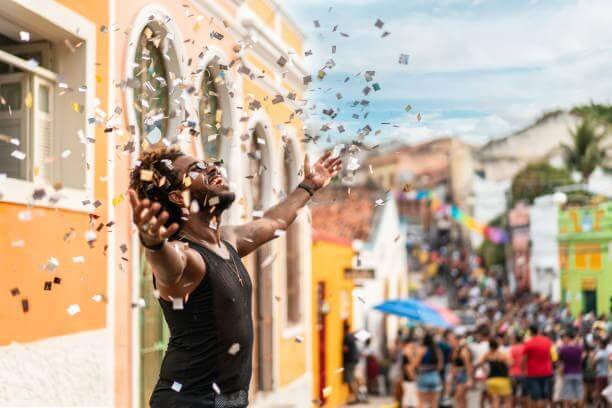
Here is the list of the Top 10 Reasons Why We Celebrate Carnival Day in Brazil:
- Environmental Sustainability
- Freedom of Expression
- Pride in National Identity
- Social Cohesion
- Economic Impact
- Street Parties
- Music and Dance
- Costumes
- Cultural Diversity
- Historical Significance
Its historical significance, cultural diversity, and economic impact make it a truly unique and important celebration that is cherished by people all over the world. So, this is The Daily Top 10 and we recommend you to read and enjoy the Top 10 Best and Greatest Guitarists in the USA of All Time, Top 10 Best Movies to Watch Each Month in 2023 and Top 10 World’s Most Searched on Google in 2022 articles.


Top 10 Most Affordable Places to Visit in Australia (Updated)
Top 10 Reasons Why We Celebrate National Carrot Cake Day
Top 10 Best and Most Popular Food Markets in Japan (Updated)
Top 10 Best Places for First-Time Travelers to Visit in New Zealand
Top 10 Best Diving Spots in Thailand (Updated)
Top 10 Best and Most Beautiful Beaches in Japan (Updated)